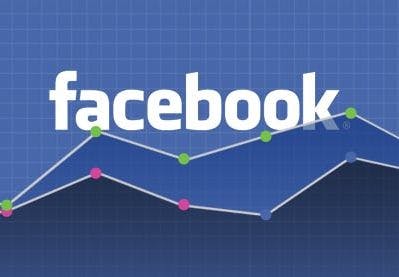Finding Silver Linings in a Downturn

By Adam Kleinberg
Last Friday, Traction hosted a Roundtable Zoom session with a group of CMOs and other senior marketers from brands big and small to discuss the challenges and opportunities of finding a silver lining in a downturn.
Our guest speaker was Bill Pearce, currently CMO of the Haas School of Business (and formerly of P&G, Campbell's, Taco Bell and Del Monte).
Ten years ago, I was fortunate to meet marketing legend, Bill Pearce, at an event in San Francisco. At the time he was CMO of Del Monte and the economy had just been devastated by the 2009 Financial Crisis. Bill told me that night that he'd just convinced his CEO to double down on their marketing budget.
Eighteen months later, Del Monte had tripled their market cap.
Today, we are just starting to feel the financial impact of the COVID-19 crisis, but as business leaders we are still tasked with keeping our customers and employees safe, our organizations growing, and our economy moving. Some might even consider it a patriotic duty.
Fortunately, it is possible.
In 2009, Del Monte was a brand in decline. While their canned green beans were better than any canned green beans on the market, they were still, well, canned green beans. Slowly, but steadily, they had seen sales decline year over year for decades.
But Bill sensed that the financial crisis was an opportunity. Del Monte started adjusting their advertising approach from talking about just brand benefits to messaging that their product is there for you when you need it to give you family the nutrition they need at the value you need.
The adjustment had immediate impact. Almost overnight, a brand that had been in serial decline started seeing an 8-10% sales lift. The results were so startling, the CEO didn't believe it. They brought in Nielsen to confirm the results and learned that they were wrong—the sales hike was actually 12%.
Bill and his team used the environment as a catalyst—for Del Monte to rethink the role their brand played and for consumers to rethink the role the brand played in their lives. And while it didn't fundamentally change a 30-year serial decline in sales (remember we are talking canned green beans here), Del Monte experienced several years on sustained growth because of it.
Every change requires a catalyst.
Every change requires a catalyst. The question is, can you identify that catalyst or can you become that catalyst for change.
Bill Pearce Dean and CMO, UC Berkeley Haas School of Business
If you're reading this, I assume you want to be one of those marketers who find a silver lining in this crisis. Here are some other key takeaways from the roundtable that could help:
Be the catalyst.
"Marketers like to brute force things: If I can be more persuasive; If I can tell my story better; If I can buy more media; then I'll beat you into submission with the idea," added Bill, "I believe marketing can be a tug boat."
In other words, find the one right spot to push and you don't need to be giant to make a tremendous impact.
There's no doubt, that the Coronavirus pandemic is a catalyst. In times of disruption, people are open to changing established behaviors—perhaps more than at any other time.
The emotional business case.
There's no getting around the fact that marketers seeking financial support to invest in their brands will need to communicate how an investment will provide an equal or greater return—in dollars and cents. But, Bill pointed out, making the case about what happens if it works is the easy part.
The harder case to make is what happens if it doesn't. The number one thing that every CEO thinks about when they go to bed at night and the number one thing they think about when they wake up: How do I stay CEO?
Sales lift is important, but don't forget to appeal to the less obvious reasons a CEO might choose to back an investment. Messages like, "This will play well for the Board—they want you to take a lead here," do resonate.
Human decisions are driven by rational and emotional factors. The decision to be bold in a crisis is no different. Use every emotional lever in your toolkit in your pitch.
Reconsider your message.
It is almost guaranteed, that the rank order of things that people value about your business, brand and product are different than they were a month ago. Simply saying the same thing that you've always said just because it's worked in the past is a recipe to fall flat with your customers.
It is both a tough reality and an exciting opportunity—every single thing you've been doing, every message, every tactic, needs to be re-evaluated. And that need has emerged overnight.
What. Who. How.
Udi Ledergor, CMO of Gong—a guy I've recently come to know, and who I respect more and more as a great marketer the more I get to know him—shared the three criteria that they are using to react fast to the crisis. If you're not familiar with Gong, they are a sales intelligence company, and they are certainly being intelligent about what they sell, who they sell to, and how they sell it.
What they are selling: Within ten days, Gong's product and engineering teams introduced new features for sales leaders that are now managing remote teams without the "swivel chair" they normally have to look around and see how their team is doing. These "swivel chair" features make Gong's product and platform even more relevant to sales teams operating in today's current environment.
Who they are selling to: They've taken a look at their target list and made smart decisions about who to sell to. Some industries are simply devastated, so they've put those taregts on hold for the time being. There's no use pushing a rock uphill. Other industries—any tool that helps people work at home, for instance—have businesses that are booming right now. They might just need some help.
How they are selling it: Some changes to your messaging will be driven by product. Others, however, are not. Gong is a b2b brand, but not your ordinary b2b brand—they use lighthearted, quirky humor to differentiate themselves that is refreshing and endearing. Obviously, it would be inappropriate to use humor when talking about the pandemic itself, but that doesn't mean humor has no place. We can all use a break from the negativity around us. Take the shared experience we all have of working at home right now. Last week, Gong posted a GIF of their team acting like robots on a Zoom call to empathize with people's choppy connections on video calls. That post received over 100,000 views on their LinkedIn channel.
Ask your customers what they want.
Leslie Emmons Burthey, VP of Marketing at women's lifestyle brand FabFitFun , had a great piece of advice—don't guess what your customers want, ask them. They are messaging and surveying customers to see what kind of content they want, how their messaging is resonating, and what types of products they'd like to see more of.
It's a simple thing, but so often, research is overlooked. It has a reputation of being burdensome, expensive and time-consuming. Certainly, it can be, but there's absolutely no reason it has to be. Be scrappy. Just talk with your customers. Listen to them. It's that simple.
Let your employees fly.
Embrace cultural change. Amy Wargin, Chief of Staff to the CMO at UnitedHealth Group, shared that they are seeing a huge cultural shift toward innovation and people are working faster than they ever have before.
It is not easy for an organization with 325,000 employees to be nimble. And let me tell you, having run an agency that has served our fair share of giant corporations over the past two decades, fast-moving enterprises are the exception, not the norm. But UHG is doing it in ways that were previously unheard of—from paving the way to self-swab testing for COVID-19 to designing featues on their website to help nurses to creating an inspiring video of people on the frontlines telling their stories.
Doing old things in new and better ways creates muscle memory. Organizations that embrace that will benefit for years to come—in ways that far outlast this crisis. That, indeed, is a silver lining.
Stay safe everyone. If you'd like to participate in a future roundtable, please drop us a line.

In 2009, Traction was hired to launch Alibaba.com in the US. A few of us had the honor of being invited to see Kobe Bryant be interviewed about leadership by Jack Ma.

A 2014 Gartner survey suggests that "89% of companies expect to compete mostly on the basis of customer experience, versus 36% four years ago." That is an astounding shift.

The concept of owning the end-to-end relationship with consumers remains an illusion while Facebook controls the introduction
